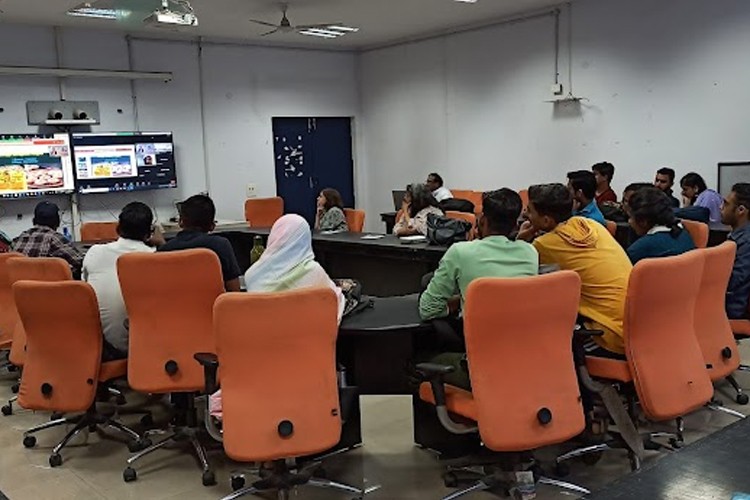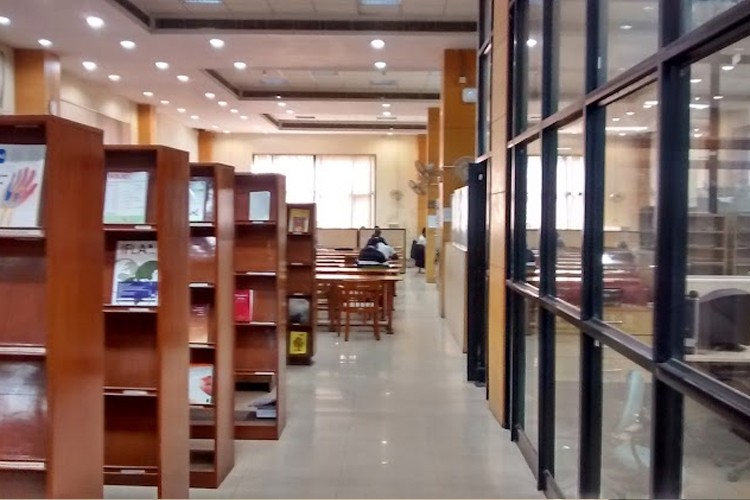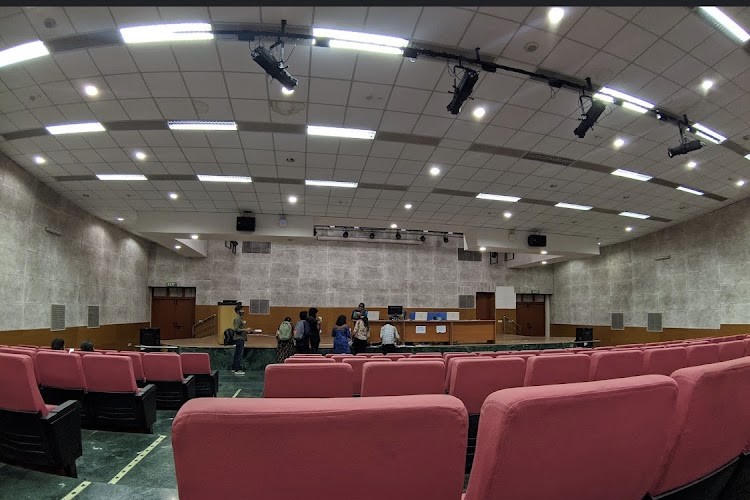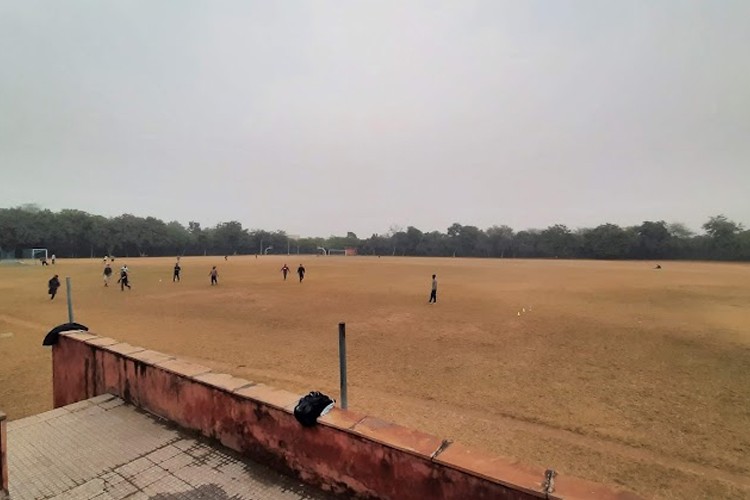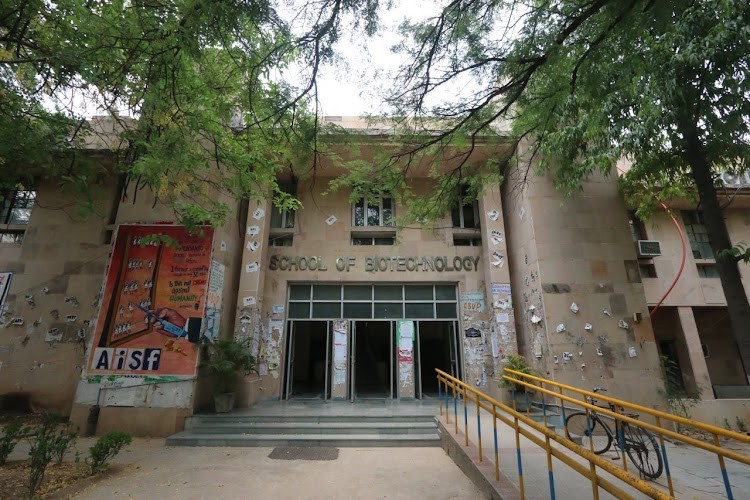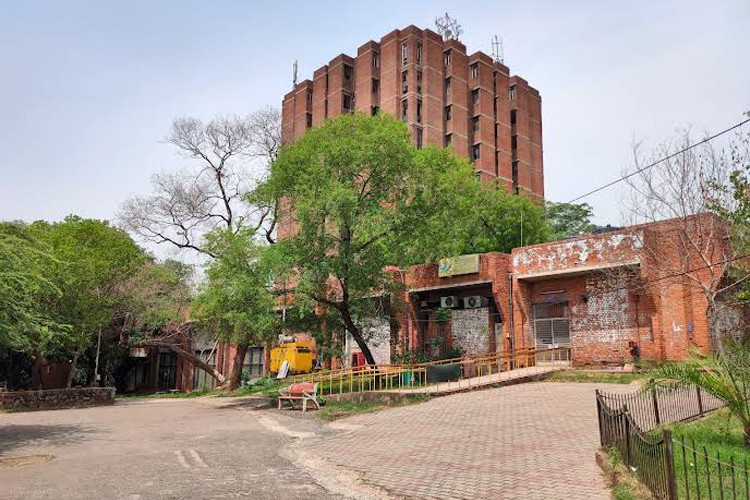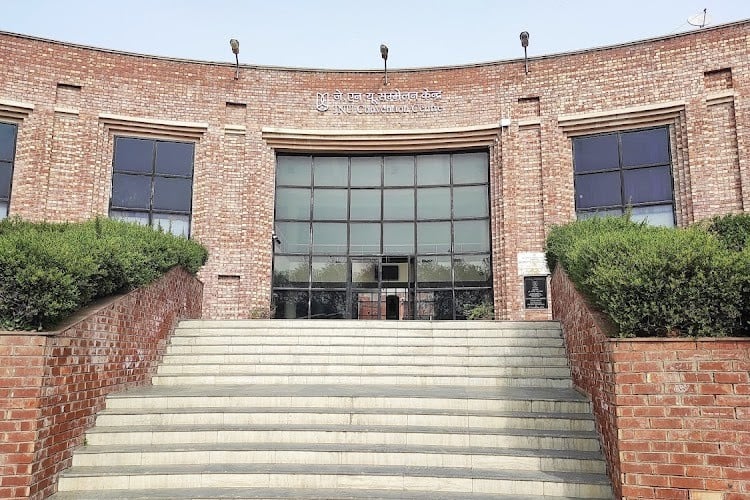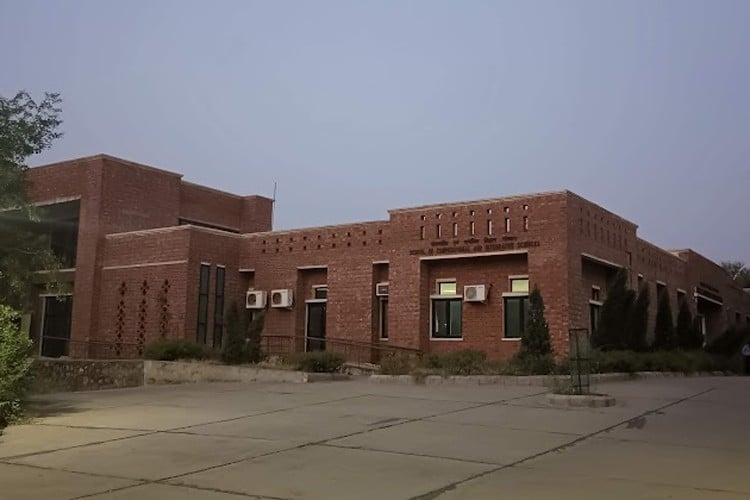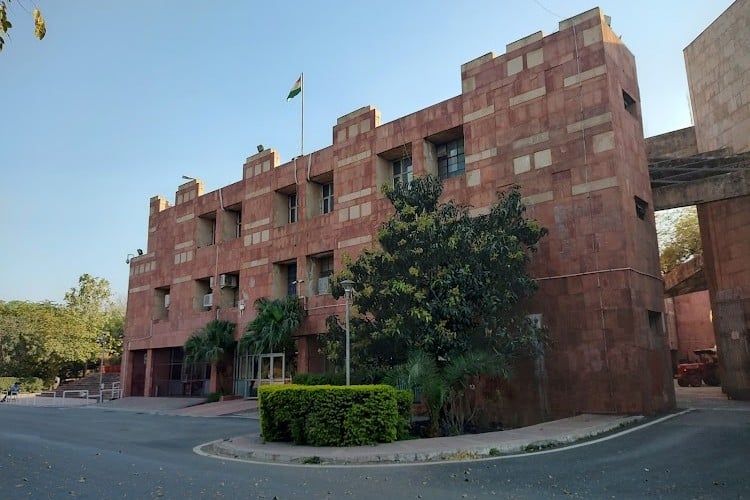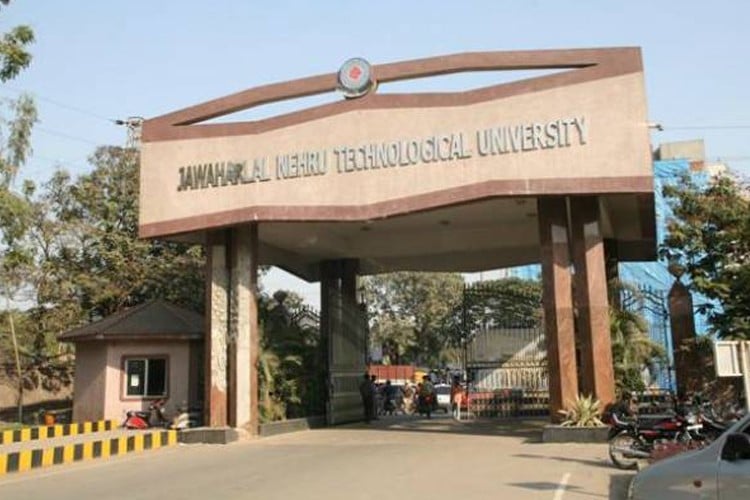collegedetails.in

Jawaharlal Nehru University is the foremost university in India, and a world-renowned centre for teaching and research. Ranked number one in India by the National Assessment and Accreditation Council (NAAC) with a Grade Point of 3.91 (on a scale of 4), JNU was ranked no 3 among all universities in India by the National Institutional Ranking Framework, Government of India, in 2016 and no 2 in 2017. JNU also received the Best University Award from the President of India in 2017.
Still a young university, established by an act of Parliament in 1966, the strength, energy, and reputation of Jawaharlal Nehru University result from the vision that ideas are a field for adventure, experimentation and unceasing quest, and that diversity of opinions are the basis for intellectual exploration. JNU is the place for the intellectually restless, the insatiably curious, and the mentally rigorous, giving them the space to grow amidst the calmness of an oasis, a green lung within the hustle and bustle and the crowds of the capital city of India.
Coming into being in 1969, three years after its establishment by Parliament, JNU brought frontier disciplines and newer perspectives for old disciplines to the Indian university system. The excellent teacher-student ratio at 1:10, the mode of instruction which encourages students to explore their own creativity instead of reproducing received knowledge, and of exclusively internal evaluation, were also new to the Indian academic landscape and have stood the test of time. The very Nehruvian objectives embedded in the founding of the University – ‘national integration, social justice, secularism, the democratic way of life, international understanding and a scientific approach to the problems of society’, had built into them constant and energetic endeavour to renew knowledge through self- questioning.
The educational philosophy of the university gets translated into its somewhat unorthodox academic structure. Grounded in a faith in the unity of knowledge, JNU has sought to avoid the narrowly conceived Department structure of conventional universities, preferring instead to bring allied disciplines within a few broad and inclusive entities called Schools, under whose interactive ambit are placed the more specialized units, called Centres, There are also Special Centres that are outside even the broad structures of School but may grow further. Then there are Research Clusters that cut across Schools and Centres as well as some programmes, which are placed within specific schools but are built on the interests of faculty across the university. At present there are ten Schools and four Special Centres in the University.
JNU was the first to offer courses in foreign languages in an integrated five year MA programme. At the Master’s level, where most of the Schools begin their academic programme, training is largely oriented towards single disciplines (although all M.A. students are encouraged to do a few courses outside their subject) but at the research level the disciplinary boundaries become more permeable. Work in overlapping or borderline areas – e.g., between environment and literary studies, economics and science, sociology and aesthetics, or linguistics and biology – is not uncommon among the Ph. D. students of JNU. Not only are the research scholars encouraged to cross the invisible walls around disciplines, the relationship between the academia and the world outside also remains negotiable, often resulting in mutually beneficial collaboration in areas that form crossroads for developing an understanding of society, culture and science.
As in the academic structure, so in its teaching process and evaluation pattern, JNU was one of the first in India to depart from the well- trodden path by emphasizing the continuity of the learning process rather than isolating the final exam as the only tool of measuring achievement. Grading is done throughout the semester, ensuring students’ participation and involvement in curricular work, and re-animating the collaborative process of generating knowledge in the class room. Even at the M.A. level, students are encouraged to carry out independent research projects in limited areas which result in short term paper.
Apart from its regular faculty, JNU has over the years established specially designated ‘Chairs’ – Rajiv Gandhi Chair, Appadorai Chair, Nelson Mandela Chair, Dr. Ambedkar Chair, RBI Chair, SBI Chair, Sukhomay Chakravarty Chair, Environmental Law Chair, Greek Chair, Tamil Chair, and Kannada Chair.
Many members of faculty and research scholars have won prestigious national and international awards for their academic work. A number of academic associations are headed by our faculty. Our expertise is highly sought after by the Government and many members of our faculty have served the Government of India in various capacities including as Ambassadors/ High Commissioners, and members of the important bodies like the Planning Commission. Many of our faculty members have also served and serve as Vice Chancellors of other universities.
The University brings out four research journals which have high academic visibility in India and abroad. These are Studies in History, International Studies, JSL (the Journal of the School of Language, Literature & Culture Studies) and Hispanic Horizons. Several members of the JNU faculty also edit national and international journals besides the above four.
Jawaharlal Nehru University has collaborated with universities across the world in research projects, conferences, and publications. It has many active MoUs with international and national universities and exchanges faculty and students with them regularly. We also host the Indian segment of some international degree programmes.
Several academic Centres of the university have been declared by the University Grants Commission (UGC) to be ‘Centres of Excellence’. These are the Centre for Historical Studies, the Centre for the Study of Social Systems, the Centre for Political Studies, the Centre for Economic Studies and Planning, the Centre for the Study of Regional Development, and Zakir Husain Centre for Educational Studies, all in the School of Social Sciences. In addition, three Science Schools – School of Physical Sciences, School of Life Sciences and School of Environmental Sciences – have also received UGC’s recognition as Centres for Excellence. The Centre for English Studies, School of Language, Literature & Culture Studies, has also been identified for Departmental Research Support under the Special Assistance Programme of the UGC. JNU itself has been given the status of the ‘University of Excellence’ by the UGC.
JNU is one of the universities in India that is well known for its academic excellence. The university conducts a placement drive every year in which top companies participate to recruit eligible students. But a huge number of students opt for higher studies instead. The University Placement Cell (UPC) of JNU works efficiently in conducting workshops, placement camps, and trade fairs with the aim of bringing recruiters and students under one roof.
JNU School of Engineering placement 2023 report has been released. The highest package stood at INR 33 LPA, which was offered by CISCO through off-campus placement. The highest package through on-campus drive stood at INR 16 LPA and the JNU average package at INR 11 LPA.
JNU School of Engineering Placements 2023 highlights are as follows:
| Particulars | Placement Statistics 2023 |
|---|---|
| Recruiters Visited | 23 |
| Highest Package (Overall) | INR 33 LPA |
| Highest Package (On-Campus) | INR 16 LPA |
| Average Package | INR 11 LPA |
| Top recruiters | Cradlepoint, Optum, Salesforce, HSBC, Ciena, Strand Life Science, S&P Global, etc. |
JNU campus is situated in the southern region of India's capital city New Delhi. It is easily accessible by road from the three major railway stations, namely New Delhi & Delhi, Nizammudin, and the Delhi Inter-state Bus Terminus. Also, the Indira Gandhi International Airport is not too far away from JNU Campus. Hence, JNU Campus can be reached easily. Students at JNU are supported and encouraged to develop and achieve success in all areas. In addition to academics, JNU offers chances for regularly scheduled extracurricular activities. Some activities that makes student life memorable at JNU campus has been listed below:
Additionally, JNU campus is equipped with advanced facilities that play a vital role in student’s development. These include:
Jawaharlal Nehru University (JNU) offers some of the most affordable degrees in the country. However, to empower academically bright yet financially weak students, it offers 30+ scholarships and fellowships. These scholarships are awarded to meritorious and financially weak students. Some of the scholarships are given below:
| JNU Scholarship | Details | Scholarship reward |
|---|---|---|
| UGC-Scholarships and Fellowship | Students can avail UGC Scholarships and Fellowships every year to pursue higher studies It is available for meritorious students, women candidates, category, minority students, foreign nationals, single girl child, rank holders at UG, PG, Ph.D levels. This UGC Scholarship fellowship extends to various Science, Humanities, Language and various other programs. | Rewards and benefits as per organisation norms |
| Jawahar Bhawan Trust Scholarship | 10 Students who maintain CGPA of 5.5 at the end of 3rd semester of MA/M.Sc. and 5th semester in case of MCA | INR 1000 per month awarded to 10 students for two semesters This scholarship may be renewed for subsequent semester(s) if CGPA maintained |
| Prof. G. K. Chadha Awards | For students hailing from differently able categories and pursuing Master programmes | Each award carries one time amount INR 5,000 with certificate, citation and memento |
| Prof. Gouri Shankar Singhal Merit Scholarship | Awarded to M.Sc. (SLS) 2nd year student with the highest CGPA at the end of 3rd semester. The selection is first done on the basis of merit and then need. | INR 1000 every month for one year |
| G. Parthasarathi Endowment Fellowship | 4 meritorious economically weaker SC/ ST and Physically Challenged handicapped students | INR 1000 per month awarded for 1 year, renewable by another year on the basis of academic performance |
